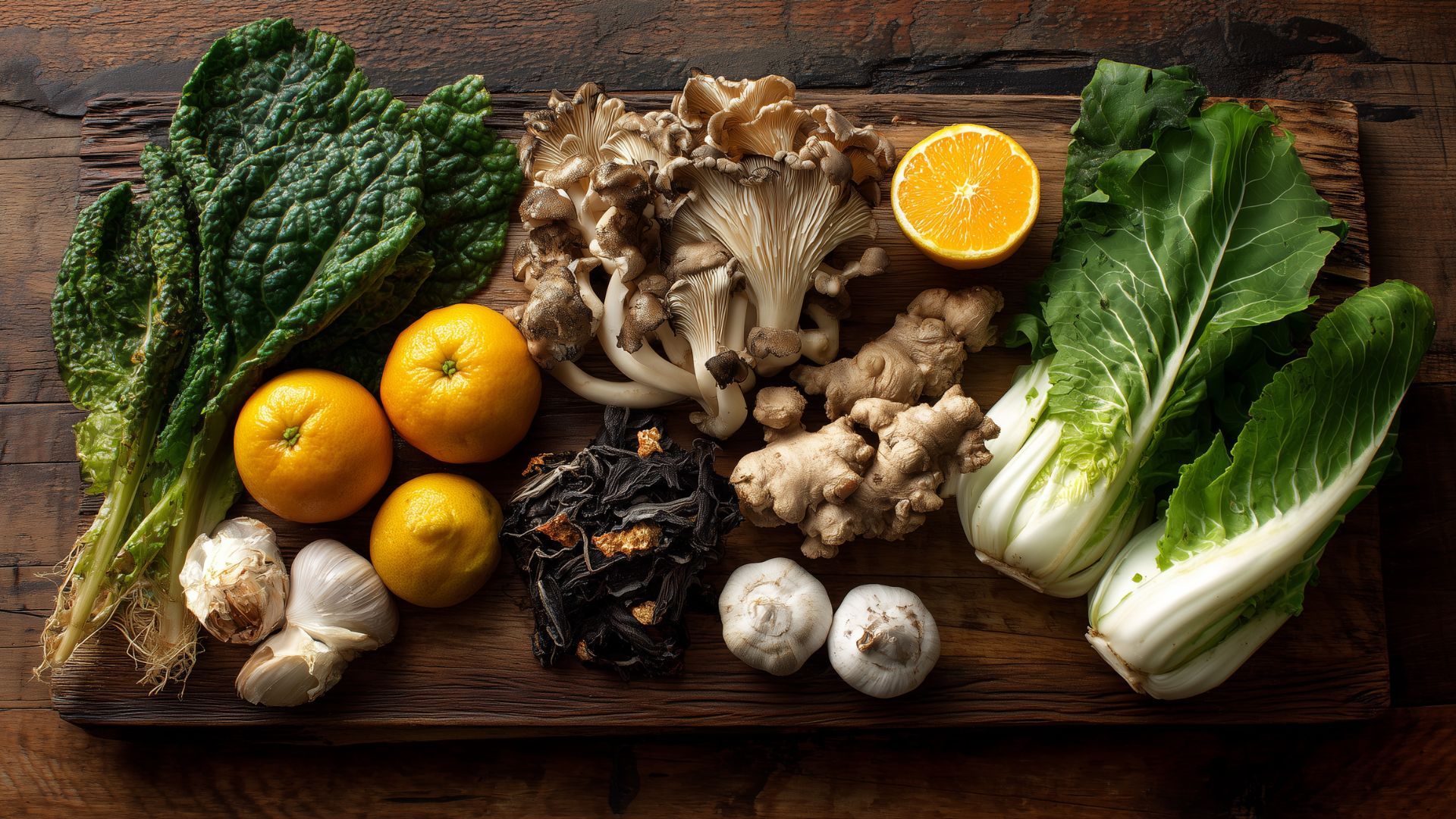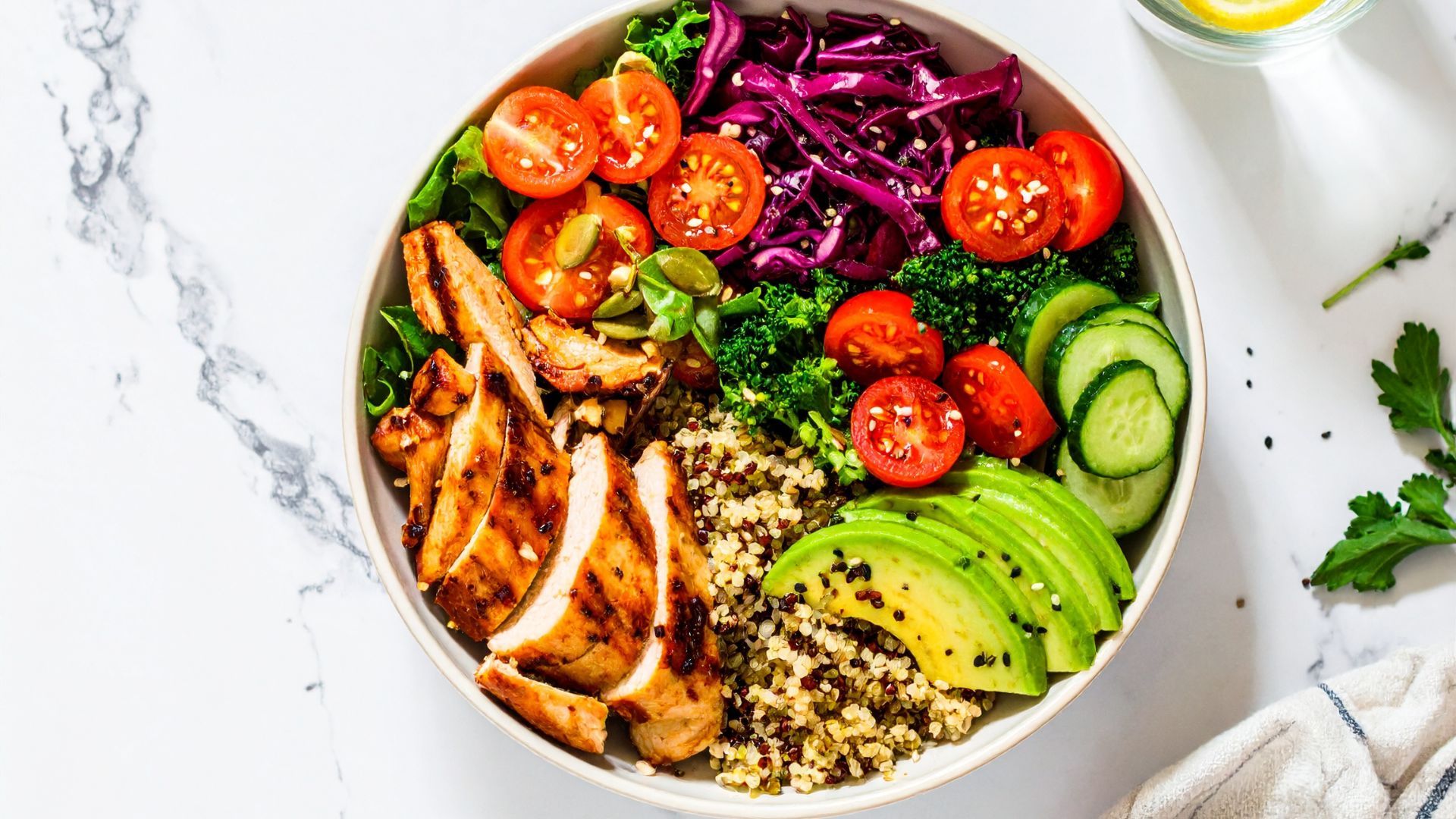5 Foods That Support Immunity (and the Science Behind Them)
Nov 07, 2025
Every winter, the internet fills with headlines about “immunity boosters” — magic teas, supplements, or quick-fix tonics that claim to keep you from ever catching a cold. The truth is far less flashy and far more interesting: your immune system isn’t something you “boost.” It’s something you support.
Immunity is a complex, finely tuned system of cells, proteins, and signals that protect you from infection. It doesn’t need jolting into action; it needs nourishment and consistency. Micronutrients like vitamin C, D, and zinc support immune cell activity, while antioxidants and plant compounds help control inflammation and oxidative stress that can weaken immune function over time.
Nutrition is the foundation of this support network — and it works best when it’s part of daily life, not a panic response when you feel run down. Here are five foods that research consistently shows can help your immune system stay resilient and responsive.
1. Citrus fruits and kiwifruit: the vitamin C foundation
Vitamin C is one of the best-known immune-supporting nutrients. It helps your body produce and protect white blood cells, which detect and neutralise pathogens, and it enhances the function of natural killer cells — key players in the body’s first line of defence.
Your body doesn’t store vitamin C, so you need a steady supply from food. Oranges, lemons, grapefruit, and mandarins are familiar sources, but kiwi is an underrated powerhouse — it contains almost twice as much vitamin C as an orange per gram.
Research published in Frontiers in Immunology (2023) confirmed that even moderate increases in vitamin C intake can improve immune response, especially under physical stress or exposure to infection.
How to include more: add kiwi and citrus slices to breakfast bowls, blend into smoothies, or squeeze lemon juice into dressings and marinades. The vitamin C will also help you absorb plant-based iron more efficiently.
2. Garlic: the ancient antimicrobial
Garlic has been used medicinally for over 3,000 years, and modern science has caught up with what ancient cultures already knew. The compound allicin — released when garlic is crushed or chopped — has antibacterial, antiviral, and antifungal properties.
Garlic supports immune defence by stimulating macrophages, lymphocytes, and natural killer cells. A 2022 review in the Journal of Nutrition found that regular garlic consumption reduced both the frequency and duration of common colds.
To get the most benefit, crush garlic and let it rest for about 10 minutes before cooking — this allows allicin to fully activate. Add raw garlic to dips or dressings, or use lightly sautéed garlic as the base for soups and stir-fries.
3. Mushrooms: nature’s immune modulators
Certain mushrooms — particularly shiitake, maitake, reishi, and oyster varieties — contain beta-glucans, naturally occurring polysaccharides that enhance immune function. These compounds improve communication between immune cells and help the body respond efficiently to infection.
In a 2023 clinical trial published in Nutrients, participants who ate shiitake mushrooms daily for four weeks showed increased levels of secretory immunoglobulin A (sIgA) — a key antibody in mucosal immunity. They also reported fewer upper respiratory symptoms.
To use them, add sautéed mushrooms to omelettes, pasta, or soups. You can also mix dried reishi or maitake powder into stocks or broths for an earthy depth of flavour with extra immune support.
4. Fermented foods: your gut’s secret weapon
Around 70% of the immune system resides in the gut. The bacteria that live in your intestines — collectively called the microbiome — influence inflammation, nutrient absorption, and even the production of immune-modulating compounds.
Fermented foods like yogurt, kefir, kimchi, sauerkraut, and miso contain probiotics that help diversify gut bacteria and maintain the integrity of the gut barrier. A healthy microbiome acts like an internal training ground, teaching immune cells to distinguish between friend and foe.
In 2024, a large study published in Cell found that participants who ate a diet rich in fermented foods had significantly reduced inflammatory markers and greater microbial diversity within eight weeks.
To get these benefits, include a small portion of fermented food daily — a spoonful of sauerkraut, a glass of kefir, or a bowl of miso soup. Variety is key; different cultures introduce different beneficial strains.
5. Leafy greens and seeds: the micronutrient synergy
Leafy greens like spinach, kale, and rocket, along with seeds such as pumpkin, sunflower, and sesame, provide a cocktail of nutrients that help your immune system operate smoothly. Folate supports the production of new immune cells, zinc aids in wound healing and cellular repair, and magnesium plays a role in inflammatory control.
Deficiencies in any of these micronutrients can impair immune response. For example, zinc deficiency is known to reduce the activity of T-cells, which are critical for identifying and attacking infected cells.
Adding a handful of seeds to salads or smoothies, and making greens a base rather than a side dish, is a simple but powerful way to fill these nutritional gaps. Lightly steaming greens improves bioavailability of nutrients like iron and calcium.
Why “immune-boosting” isn’t the goal
It’s tempting to think that more is better — more supplements, more superfoods, more antioxidants. But the immune system is about balance, not hyperactivation. Overstimulating immune responses can actually lead to chronic inflammation and autoimmune reactions.
What you’re aiming for is immune resilience: a system that responds when it needs to, then calms down efficiently. Food diversity, adequate sleep, movement, hydration, and stress management all contribute to that steady state.
The bigger picture
Supporting immunity through food isn’t about a single nutrient or trend. It’s about the synergy of diet and lifestyle — small, daily choices that create long-term strength. Garlic, citrus, mushrooms, greens, and fermented foods are a simple framework, but the pattern matters most: variety, colour, and consistency.
If there’s a guiding principle for immunity, it’s this: eat like your body has a future to defend. Every meal becomes an act of quiet resilience — not an emergency fix, but daily maintenance for the system that protects you every moment you’re alive.





